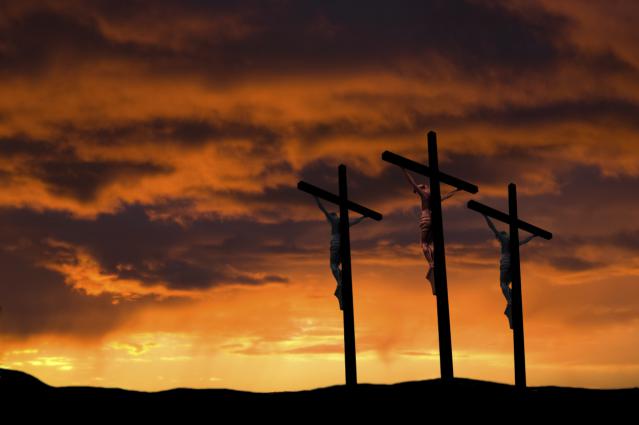
Every year we are never short of people, including Christians, who misguidedly attack Easter and Christmas celebrations as if Christians are committing a great sin by taking over originally pagan celebrations to serve the cause of Christ. The Sunday Mail of April 9 featured an article by “Religion writers” in which Apostle Dr Eugene Makore is quoted to have made many critical and often distorted statements concerning Easter celebrations.
By Rev Dr R. Musasiwa

The same type of critics attack Christians who conduct after-burial nyaradzo (comforting ceremonies) and tombstone unveiling ceremonies because the Shona traditional religion practises hwahwa hwehonye and kurova guva rites of passage when someone dies. I hope that by the time you come to the end of this article, you will be convinced that these criticisms are largely unjustified.
Now I must make it clear from the onset that I am a Christ-follower — a born again Christian who believes in the Bible as the divinely inspired Word of God which is our supreme guide in all matters of faith and conduct. It is for that very reason that I subscribe to Easter, Christmas, Christian after-burial comforting ceremonies and tombstone unveiling when these are done from a biblical and Christ-centred point of view and not when they are done to promote paganism or any other non-Christian world view.
Because of the season we are currently in, I will use Easter cerebration to illustrate the above stance although the same principles can be used for other ceremonies alluded to above.
The fact that Easter has pagan origins is not in dispute. Some Christians are in fact blindly still following pagan practices associated with Easter’s pagan origins — practices like Easter bunnies, eggs and rabbits. These pagan practices have nothing to do with the real reason for Easter, which is the celebration of the death of Christ to pay the penalty of our sins, and his resurrection that showed victory over sin and death. From this stance two questions become pertinent:
Are these events concerning Christ worth celebrating?
If they are, what is the justification for celebrating Christ during what used to be pagan practices?
- Chamisa under fire over US$120K donation
- Mavhunga puts DeMbare into Chibuku quarterfinals
- Pension funds bet on Cabora Bassa oilfields
- Councils defy govt fire tender directive
Keep Reading
So, firstly, are the events surrounding the death and resurrection of Christ worth celebrating? There can be no doubt that without the death and resurrection of Jesus Christ, there would be no basis for the Christian faith. In 1 Corinthians 15:1-4 Paul writes: “Now, brothers, I want to remind you of the gospel I preached to you, which you received and on which you have taken your stand. By this gospel you are saved, if you hold firmly to the word I preached to you. Otherwise, you have believed in vain. For what I received I passed on to you as of first importance, that Christ died for our sins according to the scriptures, that he was buried, that he was raised on the third day according to the scriptures”.
All the four gospel writers reflect the importance of events that happened in Jesus’ final week on earth. Luke devotes a quarter of his gospel to these events,, Matthew and Mark devote a third each to these events while John’s gospel devotes half of its length to the events we associate with Easter. Clearly this shows that the gospel writers believe that these events constitute the foundation of our Christian faith. In this case therefore, these events are worth celebrating, which is why Christians the world over take the events surrounding the Easter story very seriously.
This leads us to the next question. If these events are worth celebrating what is the justification for doing so during what used to be pagan practices? Does this not promote syncretism? Syncretism is a phenomenon whereby incompatible elements from two or more religious traditions co-exist in the religious practice of one person or group. For example, to be devoted to Christ and yet also cling to and rely on ancestral spirits is syncretism. God forbids this as much as he forbade the mixing of Baal worship with the worship of Yahweh (God) in the Old Testament.
But this is where we come to a paradox: By trying to wipe out deeply-rooted cultural practices and trying to evangelise on a clean slate we in fact create the very syncretism we fear. On the other hand, by building on those cultural forms, we are more likely to have Christians of integrity (who are whole) rather than those who maintain schizophrenic, syncretistic lives. To achieve this integrity, we must apply concepts like redemptive analogies and functional substitutes to contextualise the Christian faith.
In his book, Peace Child, Don Richardson explains the concept of “redemptive analogies” as the key that opened the heart of the Sawi people of Irian Jaya to understand and accept the gospel. It was the application of a spiritual truth to a local custom. In the case of the Sawi people, the local custom of offering a child to achieve peace between warring groups became the key the missionaries used to explain Jesus as the means of achieving peace between God and human beings. Such a “redemptive analogy” is a good example of “receptor orientated communication”. The gospel communicators used what was already familiar in order to create an understanding of the Christian faith. The gospel was communicated in the Sawi cultural language. In the Bible, concepts like “sacrifice” and “covenant” which had pagan origins were used as redemptive analogies to create a better understanding of the relationship between God and his people. But more relevant fo our consideration of Easter is the concept of functional substitutes.
A functional substitute happens when a deeply-rooted non-Christian cultural form is taken over and given new Christian content, meaning and purpose. Functional substitutes are used to replace elements in a culture which are in conflict with the Word of God. The Bible and church history provide examples of pagan existing forms which were taken over and given new meanings and content in the service of the Christian gospel. They include the concept of covenant, the practice of sacrifice and the celebration of Christmas and Easter.
In fact, the principle of functional substitutes has applied to Christianity from its inception. Jesus instituted the sacrament of Holy Communion as a functional substitute for the Passover which was deeply-rooted in the Jewish consciousness. Baptism was a substitute for pagan initiation rites. Similarly, Christmas and Easter celebrations have become functional substitute for ceremonies which were pagan in origin.
Christians who criticise functional substitutes for pagan practices are usually unaware that they do it all the time. A big case in point is how we all unconsciously use names of the days of the week and months of the year which were associated with pagan gods. We worship God on Sunday, but that was the day set aside to worship the sun god (hence “Sun-day”). Monday was the day to worship the moon day, Tuesday was the day for Saxon god Tiw, Wednesday for the Teutonic god Wedn and so on for all the days of the week. The same applies to our names of the months January up to August. Did you know that Januarius was the Roman god Janus and that March was Martius the Roman god Mars? Other months were dedicated to honour Roman emperors, like Julius Caesar in July and Augustus Caesar in August.
The question now is: Are we worshipping pagan gods by using their names in our days of the week and months of the year? The answer, at least for Christians, is clearly NO. Words are symbols which acquire common meanings through consensus. The meanings that matter are those we assign to those symbols now, not those which were assigned in previous centuries. Hence when we talk of Easter, our semantic agreement as Christians is that of celebrating the death and resurrection of Christ. The fact that “Easter” is derived from Eostre, the name of the Anglo-Saxon lunar goddess is as irrelevant to us as the fact that Sunday was the day to worship the sun god.
With this in mind we can now dismiss criticisms of Easter celebrations such as those reportedly made by Makore. We dismiss those criticisms not only on the basis of the fundamental principle of functional substitutes argued above, but also in the interest of correcting the many misconceptions in that article.
Easter is about celebrating the death and resurrection of Christ, not a sign of Christians being “blinded by the invasion of Greek god worshippers as they observe a pagan holiday whose origins are related to the death and resurrection of the pagan god Inana”. It is also bizarre to state that Easter “started with the insurgence of Nicolas in Acts 6:5” and to claim that by being a proselyte, Nicolas was a “non-believer of Jehovah” who brought with him his Greek worship activities into church. Furthermore, claims Dr Eugene Makore, “in Revelations 2:4 and 2:9 we see Jehovah confirming His hatred for the works of Nicolas and all his followers.”
In fact, Acts 6 portrays a picture of Nicolas totally different from that attributed to Makore. He was one of the seven men from among the Christians who was “known to be full of the spirit and wisdom” (verse 3). He himself had been, prior to becoming a Christian, a convert to Judaism, which is what proselyte means. How such as person could have “brought with him his Greek worship activities into church”, or that he was a founder of the Nicolaitans condemned in Revelation is a strange interpretation of Scripture, coming from someone of Makore’s standing.
We conclude by saying that celebrating Easter is a valid way of honouring God, and by no means a mockery of him as Makore alleges.
Rev Dr R. Musasiwa is the Principal of Domboshawa Theological College Email: [email protected]











